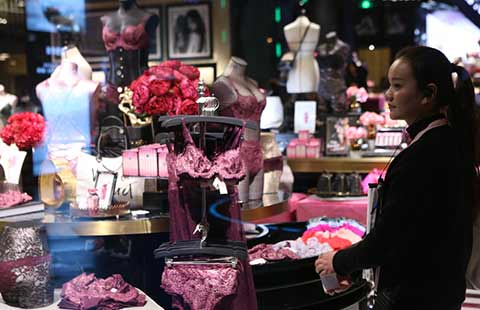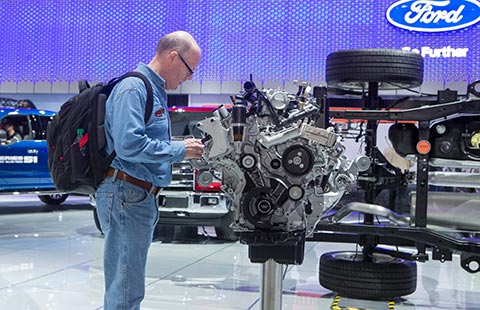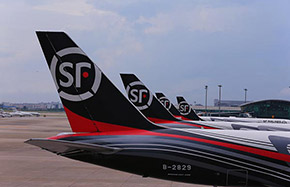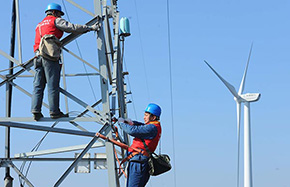Fonterra plans to sell infant formula in China
By Wang Zhuoqiong (China Daily) Updated: 2013-04-10 09:14Fonterra Co-operative Group Ltd, New Zealand's largest milk processor and dairy exporter, is aiming to launch its branded infant formula in China in the middle of the year and plans to set up a liquid milk manufacturing plant in the country soon.
The company's plan to expand its business from dairy farming to infant formula and milk manufacturing, which generate higher profit margins, is expected to strongly increase its presence as well as revenue in the lucrative Chinese dairy market, analysts said.
Fonterra has already been selling Anmum Materna products - formula for expectant mothers - in some regions in China and online.
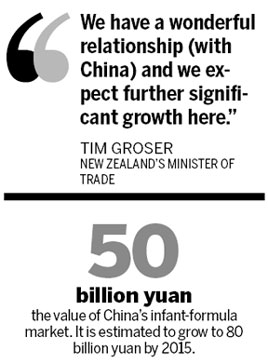
To catch up with other global dairy companies operating in the market, Fonterra will sell Anmum Infant and Follow-On Formula in stores in China from the second half of the year in selected regions, and sell the brand throughout the country later in the year, Kate Hao, public relations manager for Fonterra China, told China Daily on Tuesday.
The company also plans to build an ultra-high temperature milk manufacturing plant in the country soon. This is an addition to a new manufacturing plant in New Zealand which opened early this year, Hao said.
Fonterra runs two milking farms in Hebei province, with another three under development, with the goal of producing 1 billion liters a year in China by 2018.
The company has remained watchful and cautious since Shijiazhuang Sanlu Group, partly owned by Fonterra, was involved in a melamine contamination scandal in 2008.
But now the time is ripe for Fonterra to re-enter the consumer market, said Song Liang, a dairy analyst at the Distribution Productivity Promotion Center of China Commerce, with Chinese consumers becoming keen to buy high-end milk and foreign infant formula products.
The preference for foreign milk brands among "irrational and over-sensitive" consumers in the country will continue to strengthen the dominance of foreign infant formula brands in first- and second-tier cities for at least five years, said Song.
The infant-formula market, worth 50 billion yuan ($ 7.97 billion), is estimated to grow to 80 billion yuan by 2015, he said.
- NZ's Fonterra milk powder 'not culled' in China
- Fonterra sets up Shanghai innovation center
- Fonterra inks farm deal to milk from demand
- Fonterra invests $30m in Hebei dairy farm
- Infant formula maker OK'd for NZ dairy plant
- Warning issued for imported NZ infant formula
- Infant formula milk safe: Dairy Association
- Dragon baby boom drives up infant formula prices
- Hero Group enters China's infant formula market
- China bans bovine colostrum in infant formula
- China issues infant formula regulation
- China's infant formula market faces shake-up
- Hisense debuts dual-screen smartphone
- China's largest production base for industrial drones under construction
- Baidu reports stable 2016 revenue growth
- He Lifeng appointed NDRC director
- A model wants to thank Jack Ma
- Central bank drains more money from market
- Lenovo revenue in Turkey up 61% in 2016
- Shandong leads in fixed-asset investment in 2016


